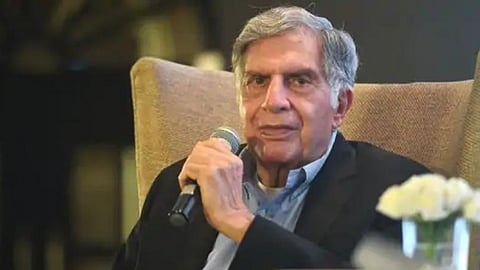

We're seeing more builders than ever before in this day and age of Startup India. But we're also seeing more burnout, more course correction, and more quiet exits.
The biggest culprit: the illusion that business success stems from a clear, linear plan. This is a hangover from the industrial age, when markets were predictable, consumers stable, and disruption slow. That world no longer exists.
These are the days of founders who know when to abandon their plans—and pivot with purpose.
Take Satya Nadella's transformation of Microsoft. When he took over as CEO of Microsoft in 2014, the company had all the attributes of success: market share, capital, brand recognition. Yet, it was stagnating, distracted by its Windows legacy, disconnected from the mobile revolution, and defensive about innovation. Nadella didn't just tweak the plan; he discarded its central dogma.
He shifted Microsoft's focus from 'know-it-all' to 'learn-it-all', famously bringing empathy and adaptability to a technocratic fortress. The results? A stock price that soared over 900% in under a decade and a cultural shift that made Microsoft relevant in AI, cloud, and enterprise.
The lesson is not merely managerial, it's philosophical: "The business plan is a fiction you write to begin, not a scripture you follow to the end."
Closer home, Ashish Hemrajani's BookMyShow is another case in point.
It started in the late '90s, pre-digital India. The dot-com bust nearly buried it. It took years of grinding reinvention before the business model finally fit the Indian reality.
Most would've shut shop. Hemrajani didn't. He adapted. He waited. He learned.
In these cases, what worked was not the original plan, it was the ability to abandon it at the right time.
When the pivot becomes the core
In today's entrepreneurial ecosystem, especially after the pandemic, the pivot is no longer a reaction, it is strategy.
A 2023 McKinsey Global Survey found that over 70% of startups had significantly altered their business model within the first 24 months. This isn't a sign of chaos; it's a sign of cognitive flexibility. What separates a unicorn from a flameout is often how fast the founder can unlearn.
India's regulatory and economic volatility further compounds this need for agility. One day you're riding a policy wave (think: UPI, GST simplification); the next, you're blindsided by a tax ruling or data protection clause. Founders who insist on rigidity are simply not building for India.
The Ratan Tata lesson
What's often missing from the glossy entrepreneurship narrative is the emotional toll of starting over. Every time you pivot, you risk losing investor trust, dampening employee morale, and bringing down your own self-belief. There's no pride in telling your team that the last 18 months of work must be left behind.
That's why entrepreneurship isn't for the blindly optimistic, it's for those who are strategically humble. The ability to let go of your prized ideas, walk away from sunk costs, and treat failure as useful feedback is the mindset the new economy demands.
As Ratan Tata once said in a rare candid moment: "Many of our successes were not based on perfect planning. We learned as we went along."
The Tata Group's global ventures, some of which failed before becoming case studies, reflect this kind of resilience.
The Indian advantage
India's greatest startup strength may not be capital or code, it may be cultural. A country familiar with jugaad, unpredictability, and frugal innovation is oddly well-suited for this new paradigm of nonlinear growth.
The Zerodha model, with its flat-fee broking, wasn't derived from global templates. It emerged from an intuitive reading of Indian retail investors.
The same goes for BYJU'S, not the company as it stands now, but its earliest form, which was built around a single teacher's ability to connect on YouTube and at stadium-sized sessions.
The founders who win in India are those who understand that what looks like chaos is context, to be read, adapted to, and engaged with, not fought.
Toward a new theory of the journey
We must retire the romanticized language of founders 'sticking to their vision'. In today's world, stubborn vision is a liability.
Instead, you build fast and test even faster, embracing experimentation as your default mode. When uncertainty creeps in, as it inevitably will, you shrink the risk radius, making smaller, smarter bets rather than all-or-nothing leaps.
You expect the plan to fail and deliberately design for that failure, ensuring it becomes a stepping stone rather than a dead end. Above all, you learn to distinguish between resilience and rigidity, understanding that staying the course is valuable only when the destination is still relevant.
Most importantly, surround yourself not with those who agree with your plan, but those who will challenge its shelf life.
Darwinian truth for entrepreneurs
Entrepreneurship isn't a promise of success, it's a commitment to wrestle with uncertainty, day after day. Every reboot, every setback, every pivot isn't a sidetrack, it is the journey. The path forward is rarely straight and rarely planned.
We need to stop treating failure as an exception in the entrepreneurial story. It's not the opposite of success; it's the entry fee.
In a world where the landscape shifts faster than your strategy slides can keep up, foresight alone won't save you. Flexibility will. The ability to adapt, again and again, is the only plan that holds.
As Charles Darwin noted, "It is not the strongest or the most intelligent who survive, but those who can best manage change."
And in today’s economy, that's not just a biological truth, it's a business imperative.
(Ashutosh Kumar Thakur is a Bangalore based Management Professional, Literary Critic, Translator, and Curator.)